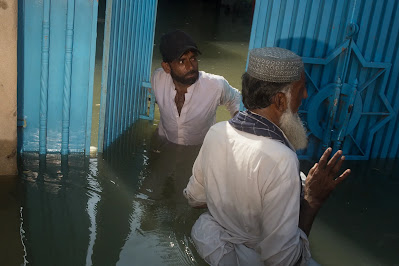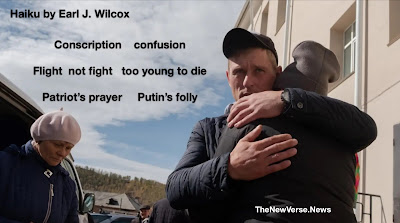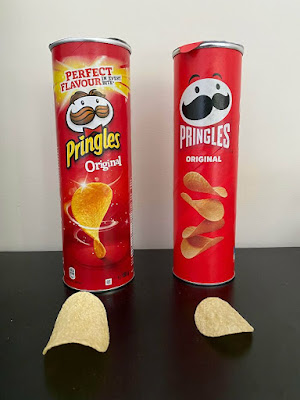Today's News . . . Today's Poem
The New Verse News
presents politically progressive poetry on current events and topical issues.
Friday, September 30, 2022
POLICE VIOLENCE IN REVERSE
Thursday, September 29, 2022
HUBRIS
Wednesday, September 28, 2022
READING ANNE FRANK’S DIARY IN FARSI
 |
| About a dozen teen girls in a secret book club in Afghanistan are reading—and finding comfort in—Anne Frank's diary. Arzou, one of participants, said it was the first time they had read the firsthand account of a teenage girl living through extreme hardship. "I think Anne Frank is like, as a friend for me," she said. Photo: Diaa Hadid. —NPR, September 11, 2022. |
In a basement at the edge of Kabul, at a secretbook club,a dozen teenage girls defy the Taliban,feed their curiosity, exercise their minds,connect to a Jewish girl from a distant time andplace.
I want to be useful or bring enjoyment to all people
In translated books, the girls find themes to tunnelthrough darkness.Volunteer leaders steer the conversations, probewith questions.Girls like Arzou discover a kinship with Kitty—
Anne’s diary, relateto bickering with mom, crush on Peter, resolve notto lose hope.
Even those I’ve never met
What brave teens, they’ve survived suicidebombings,losses, terrors, hardships of their Hazara minority.In the past year, they’ve cried and tried tocircumventthe Taliban’s intent to cover, confine, underminewomen.
I want to go on living even after my death
Masouma finds comfort in Anne’s diary, despiteher graspof Anne’s horrific end. These teenage girls ofAfghanistannow all dream of writing a book. Zahra says,“Nobodyknows how long I will live, or when I will die.”
Editor's Note: The italicized lines are quotations from Anne Frank's The Diary of a Young Girl.
Elane Gutterman is a trustee and the literary chair at the West Windsor Arts Center. Her poems invoking social justice have appeared in prior issues of The New Verse News. Her first book of poetry, Tides of Expectation (Kelsay Books), was published earlier this year. She dedicates this poem to the brave girls in the secret book club in Kabul and to one remarkable Afghani girl who arrived in Santa Fe, NM this week to begin tenth grade studies there.
Tuesday, September 27, 2022
A WOMAN’S FACE
 |
| Tweet by Iranian journalist Masih Alinejad 9/16/22 |
Dark clouds covered the sky
for months before the year
Troy fell prey to a wooden horse.
Scientists now tell
nothing had been growing
for years before chieftains
took their tribes
in search of better pastures,
warring one another for the right
to greener valleys.
Homer decries
the face of a beautiful woman
for the first war,
but tree stumps
tell of darkness, drought;
the bowels of the earth tell
of roaming hordes
drifting, losing their roots.
The underworld
brings back abandoned hearths,
jars still full of honey, tools,
cradles, toys,
weapons
buried where a fighter fell.
The scientists can’t yet tell
what covered the sun, what
drove the peaceful herdsman
to take up arms and leave
the simple habits
of his pasture,
but back there, where ancient empires
used to thrive, five thousand years on
and, still, a woman’s face,
even when veiled,
is blamed. Is doomed.
Ana Doina, Romanian-born American writer living in New Jersey, left Romania during the Ceausescu regime. Her poems appeared in numerous print and online magazines, anthologies, and textbooks. She won Honorable Mention in the Anna Davidson Rosenberg Awards for Poems on the Jewish Experience contest in 2007, and three of her poems were nominated for the Pushcart Prize in 2002, 2003, and 2004.
Monday, September 26, 2022
CLOUDS FALL
 |
| A heavily flooded home in Rajo Nizamani village, near Jhirk, Sept. 10. Credit: Hassaan Gondal for TIME. |
Sunday, September 25, 2022
NOT OVER
I’m Omicron, son of Delta
I skipped generations
from four to fifteen
letters of the Greek alphabet
I’ve outrun Delta
gone after 200,000 more
surpassed a million
despite decrees, desires
for the old normal
—that hell
for everyone (but the dead)
to get back to work
forget your boosters
travel bans and masks
after all this time
you still don’t get what global means
you may be faster
smarter now
but after two and a half years
so am I
your rich country as backward
as the ones you’ve impoverished
but you win again, America
tally the most dead
so dream on about “herd immunity”
your unvaxed forty percent
still my gateway
and I’m here to stay
Saturday, September 24, 2022
HAIKU
 |
There were emotional scenes in the eastern Siberian republic Buryatia as drafted men said goodbye to their families. Credit: Ayuna Shagdurova, The Guardian, September 23, 2022 |
Friday, September 23, 2022
NEW FOSSILS
 |
It's not often you find a bright side to drought, but in Texas, the heat and lack of rain have uncovered dinosaur tracks from 113 million years. The tracks were unveiled at Dinosaur Valley State Park in Glen Rose, Texas — about an hour's drive from Fort Worth. The park is known for its dinosaur tracks, but these newer ones are usually covered with water from the Paluxy River and aren't visible. NPR, August 25, 2022 |
In the photograph you perch atop your tall chair,
a Mesozoic predator with a smaller dinosaur–in this case
a plastic stegosaurus mailed to you by your Uncle Richie.
Your skin pallid, papery like a new fossil exposed to air,
your lifeless smile a museum skeleton, you were four years old,
my son, and it was just spring, and no one knew you
had leukemia or how close to death you were.
The floods arrived, tests and tears, swift currents
sweeping you across town to the children’s hospital
clutching your favorite things. I discovered you each day
washed up on the bank of your hospital bed, wires and tubes
twisted around your withered limbs like prehistoric vines.
For our home, you became a mysteriously vanished creature,
a question sleeping at the end of a trail of footprints,
and I became a scientist logging your every trace,
following your ancient tracks, cataloging your fragments
while your nurses and doctors reconstructed you.
Now, each time I think I have you adequately described
and slouch toward the podium of my heart to proclaim,
“I hereby present my findings so the world will know
this child, my little boy, who roamed this very Earth—”
more evidence appears, the sediment of my hours
is scoured away to reveal more mundane marks
made sacred by distance, disaster, the old economics
of despair: your preschool mat on the floor like a shed skin,
your crayon drawing of our family, crumpled, a primordial leaf,
your t-shirt sleeve peeking like an ancient tooth
from the laundry pile, and the wondrous sets of trackways
I found one afternoon when I collapsed face-down on the floor
near where you and your puppy used to play,
the tiny footprints tell where you both scurried in
from a sudden storm, faint mud on laminate flooring,
puppy and boy, a cataclysm of joy frozen in time.
Spring was a hundred million years ago and in every second since
I have lived a life of hope and mourning. These new tracks emerged
from behind my tears like your toys when I would drain the bath.
Where do they lead? Perhaps to the children’s hospital
and your den of blankets and tubes, or to the counter
and the photo of your dying child’s smile,
or into an uncertain future where I
cannot see you, surely because
you are only bounding ahead.
Thursday, September 22, 2022
DROUGHT’S HIGH DESERT HOWL OF THE WOLF
 |
| “Megadrought in the American south-west: a climate disaster unseen in 1,200 years.” -The Guardian, September 12, 2022 |
D-r-o-u-g-h-t
Whenever I see the word—
I want to dismantle it
D—the letter—is easy—
delete and destroy
the most unforgiving letter—to me—
letter O—like a wolf’s maw—
whose mandible blades the heart—
as I watch high desert’s drought
wolf whatever’s in reach
of its insatiable jaws…
Golden seas of shimmering
cow-pen daisies
Billowing swarms of insects
that sustain night hawk and bat
Purple Russian Sage beloved
of bees
Acequias—historic hand-dug
streams—feeding pasture
and crop
Rio Grande turned
into a waterless highway
of sand
Weakened pine—long needle
and short—decimated
by bark beetle
Every dead tree a depleted
trove of oxygen
If drought were a song—I’d hear
a one-note elegy of unyielding spareness—
a flameless fire unfurling in three-quarter
time—a waterless flood whose silent
music swallows all it touches—insistent
waltz whose slow cadences fool hope—
clouds swollen with broken melodies—
cisterns hollow with minor-key emptiness—
Aspen’s metallic yellow of fall chorusing
a month too soon
Call me a fool to plant a small forest
of trees—when I build here at seven-
thousand feet in Indian Country—half
of these children—if I may call them that—
fail to survive—no defense against a force
ghostly—merciless in its fury to gorge
on blood from leaf/petal/earth—flame
never seen—flood never felt—rapacious
lupine shadow hidden in the dark of light
Wednesday, September 21, 2022
INFLATION
This poem doesn’t go as far as it used to.
In the past, twelve lines would wrap it up,
Say all we wanted to say,
But now each word buys a little less,
Each syllable strains to make a complete sound,
And we’re left wanting,
Hungering in the margins,
Left short each stanza,
Straining to make it work,
Straining to just get by
In an economy
With a fixed amount of words
But extravagant combinations.
Harold Oberman is a poet and lawyer writing in Charleston, S.C. He has appeared recently in The New Verse News, The Free State Review, An Anthology of Low Country Poets, and has been honored by the Poetry Society of South Carolina.
Tuesday, September 20, 2022
DON’T KID YOURSELF
“I thought I was writing fiction in The Handmaid’s Tale.”
"It cannot happen here," we claim;
"Our country couldn't be that bad!"
But we may live to find the fame
M. Atwood found in Gilead.
Monday, September 19, 2022
IMMIGRANTS ARE TAKING OUR JOBS
 |
| When Lever Alejos of Venezuela arrived at the southern border penniless in July, he gladly accepted a free bus ride to Washington, D.C., courtesy of the state of Texas. He had no family or friends to receive him, and spent one night in the plaza across from Union Station. He soon settled into a homeless shelter. “I have nothing,” Mr. Alejos, 29, said on his third day in the city, “but I have the will to work and succeed.” Two months later, Mr. Alejos is making between $600 to $700 a week, saving up to buy a used car and planning to move out of the shelter. “There is so much opportunity here,” he said on Thursday, at the end of a day’s work. “You just have to take advantage of it.” —The New York Times, September 18, 2022 |
after he said that to me
I wondered how it could be true
that a person with little capital and
only the possessions they carried
was so powerful that
they could “Take” a job from someone.
Everytime I ever got a job
I had to ask for it
and a job was offered to me.
Talk about the capitalists who
are giving jobs away to
desperate people willing to accept lower pay
Inside our country or worldwide.
Talk about the capitalists who
turned their back on you and your family
to exploit a vulnerable working class population
the immigrants.
Follow the money and see
who is the real thief
Robert Wildwood, a poet from Duluth, Minnesota, makes his living as a nurse.
Sunday, September 18, 2022
QUEUED
 |
| The queue for Queen Elizabeth II's lying-in-state is visible from space in this photo taken Sept. 16, 2022. (Image credit: Satellite image ©2022 Maxar Technologies @Maxar via Space.com.) |




